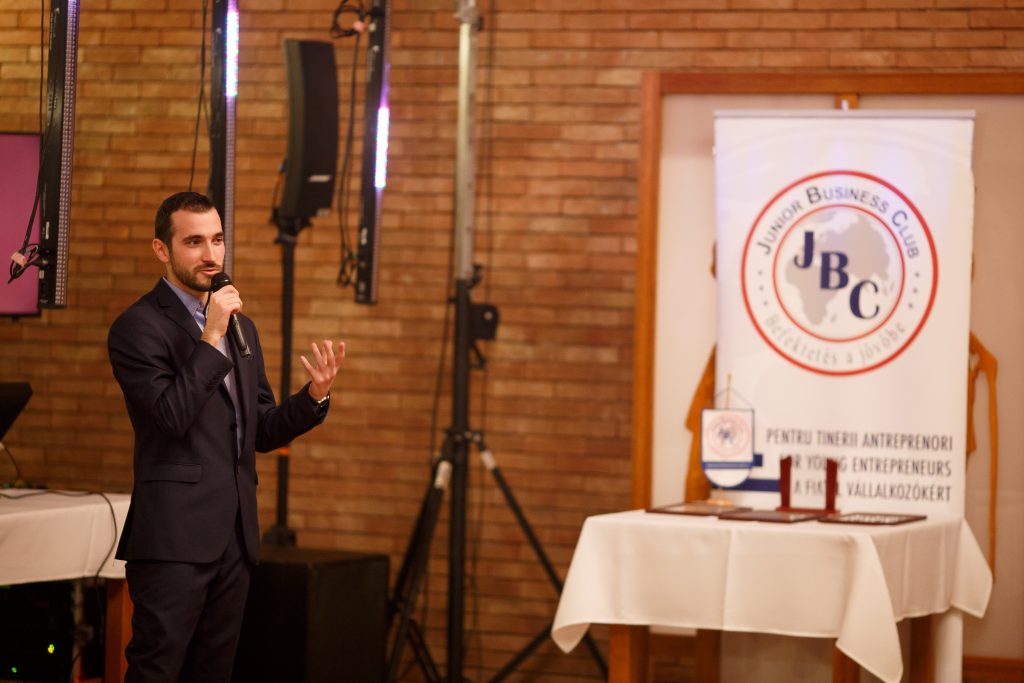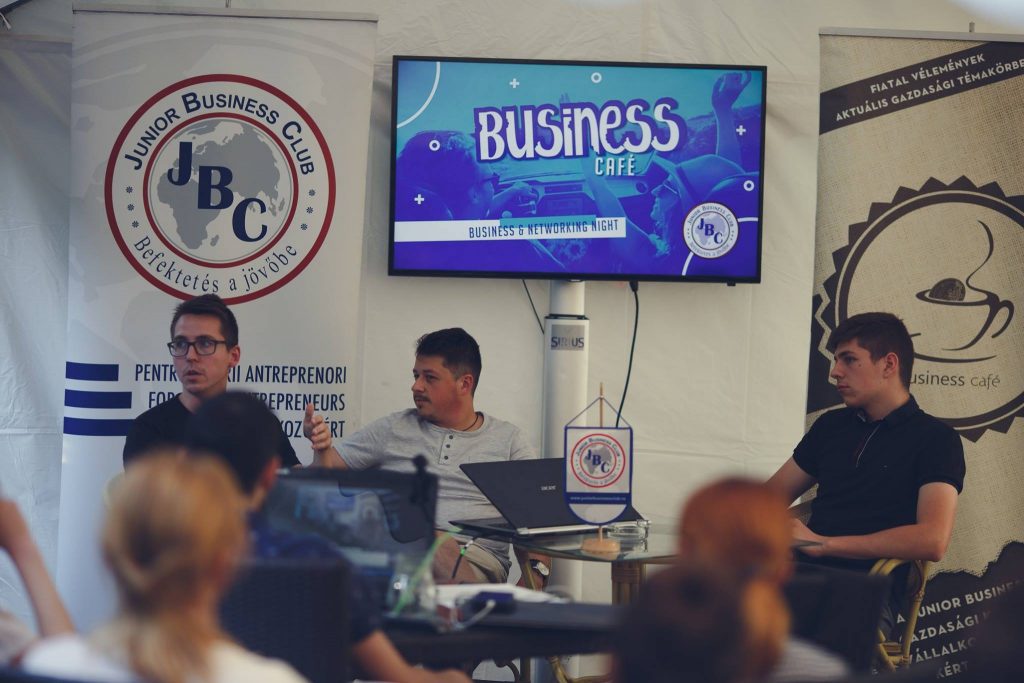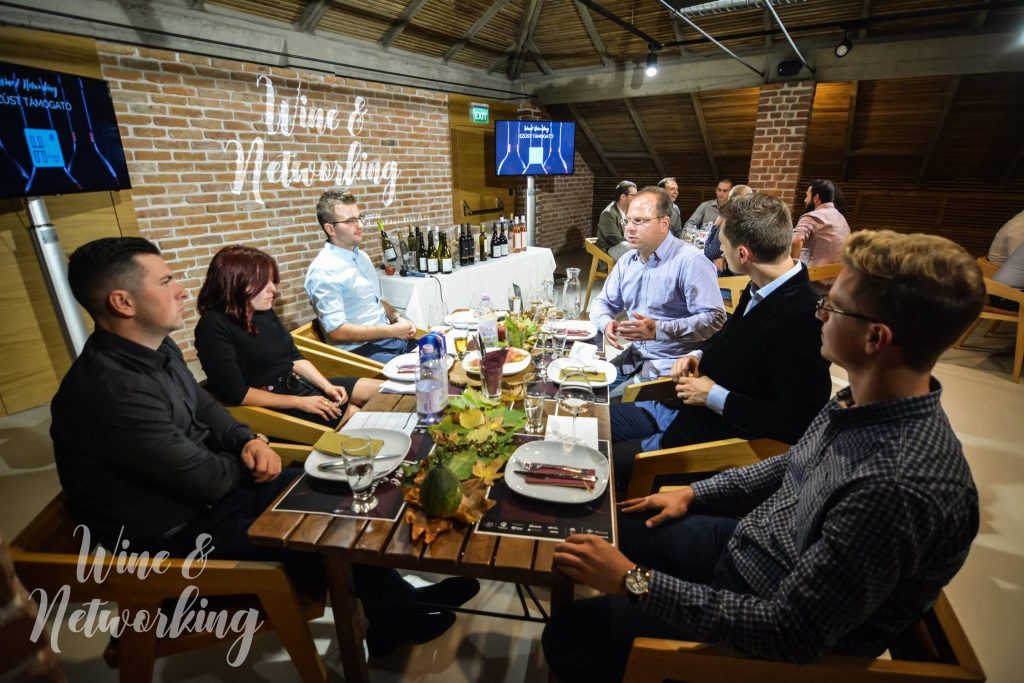Driven by an unquenchable thirst for information, a small group of budding entrepreneurs and students founded the Junior Business Club with the clear goal of learning more about businesses directly from the source. Since then, they have changed many people’s lives. Some went on to become entrepreneurs, but they never stopped sharing information and knowledge with other young people dreaming of running a business.
 Peter Drucker, the father of modern management, emphasized the importance of entrepreneurship to the economy of any country, as time has shown that small businesses create jobs, generate sustainable economic growth, and prompt progress. When founding the business club in 2009, Endre Szőcs and Szilárd Péter Kelemen – then leaders of the association – had no idea about this. Instead, as young people looking to run their own business, they wanted to get firsthand experience of what it takes to establish a company and generate profits. Since then, they have created an environment fostering an entrepreneurial culture.
Peter Drucker, the father of modern management, emphasized the importance of entrepreneurship to the economy of any country, as time has shown that small businesses create jobs, generate sustainable economic growth, and prompt progress. When founding the business club in 2009, Endre Szőcs and Szilárd Péter Kelemen – then leaders of the association – had no idea about this. Instead, as young people looking to run their own business, they wanted to get firsthand experience of what it takes to establish a company and generate profits. Since then, they have created an environment fostering an entrepreneurial culture.
“As first-year students at the university, we felt that the theoretical training wasn’t enough, and we had no idea how it worked in real life. We founded the Junior Business Club association as a way of gaining access to the missing know-how. From our perspective, firsthand experience comes from entrepreneurs and business associations, so we have invited them to roundtable discussions and scheduled visits to a variety of businesses. We have kept on doing that during the past ten years of the existence of the association,” Zsolt Karácsony, leader of the Junior Business Club since 2013, told TransylvaniaNOW. Karácsony was a founding member of the club in 2009 and he launched a business himself a few years ago.

The ten founding members of the association clearly defined the three pillars of their activity: (1) access information, (2) expand their network of contacts, and (3) gain access to knowledge and experience. During the past ten years, all events organized by the Junior Business Club have adhered to the aforementioned goals. Thus, the Business Café event held monthly with speakers from a variety of business segments, the Wine & Networking event where young entrepreneurs can meet new people and talk with potential new partners, and the annual Workshop camp where theory is combined with practice in a friendly environment. These are just three of the many events carrying the Junior Business Club signature.

However, in a Central Eastern European region where entrepreneurial culture was only in the early stages, the initiative generated mixed reactions among business owners. Some asked why they organize events about entrepreneurship when they are not yet business owners. The group had a very simple answer: We do that because we want to become entrepreneurs, Karácsony told TransylvaniaNOW. “Since we started, roughly half of the members have launched their own businesses,” he added.
Considering that entrepreneurial culture in Transylvania is a “work in progress,” specialists are saying that the fear of failure is the most important barrier to entrepreneurship development. If we combine that with a lack of encouragement among the close circle of family and friends of the wannabe entrepreneur, we get a fuller picture. Junior Business Club is a community that promotes business opportunities for young people, enables easy access to information, and establishes a communication channel between involved parties, combined with a great amount of encouragement and professional advice in order to allow the dreamers to do what they need to do.

The generation gap, however, remains a challenge even for them. At the beginning, the programs targeted young people aged between 18 and 25, but they recently adjusted the target group to 18- to 35-year-olds. Sometimes, however, it’s difficult to formulate a message that gets through. “It’s becoming harder to connect the generations [Karácsony is 31 years old], because we don’t live among them,” Karácsony says referring to the younger generation. “The problem in communication is rooted in our time management: We are not spending enough time among them, so we don’t always have a clear view of what interests them. So, the message won’t reach its recipient if it’s not formulated correctly. Young people have amazing ideas, and they bring a fresh approach, great ideas, and enthusiasm, but it’s a challenge for us to communicate our values to them. We are working on it,” he added.
As a community of wannabe entrepreneurs and business owners, one of the most important aspects and value of the time spent together is the mutual attention and constructive feedback, combined with encouragement. Progress is possible without it, but for a young entrepreneur, it is essential, Karácsony said.
Title image: Startup Pitch Day, event organized by the Junior Business Club. Image credit: JBC